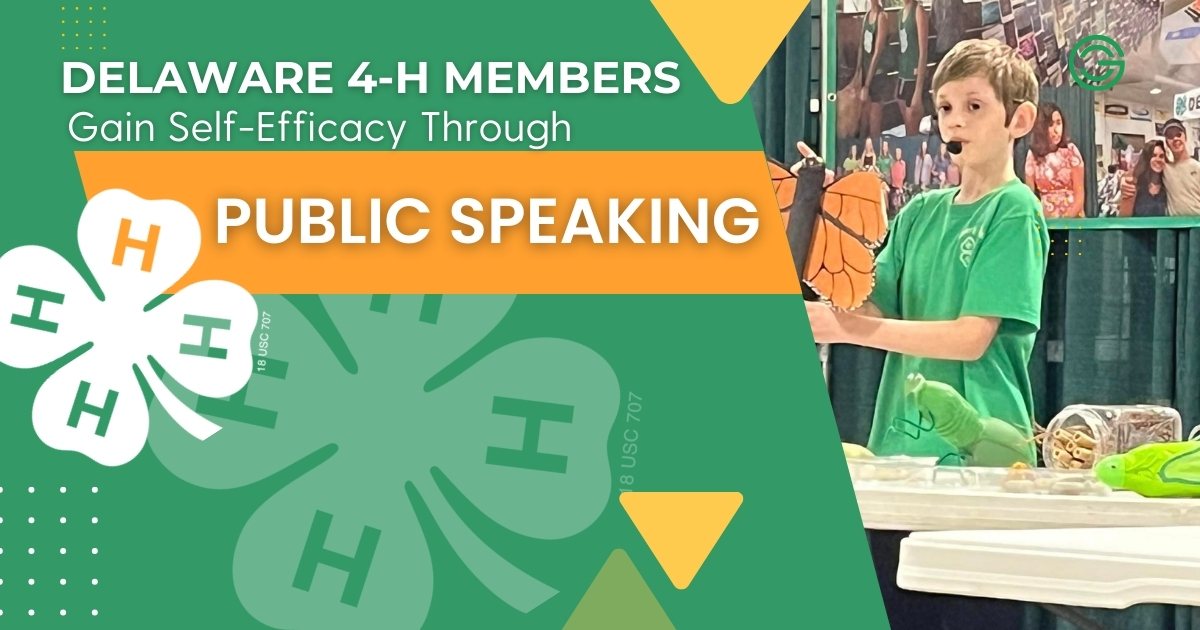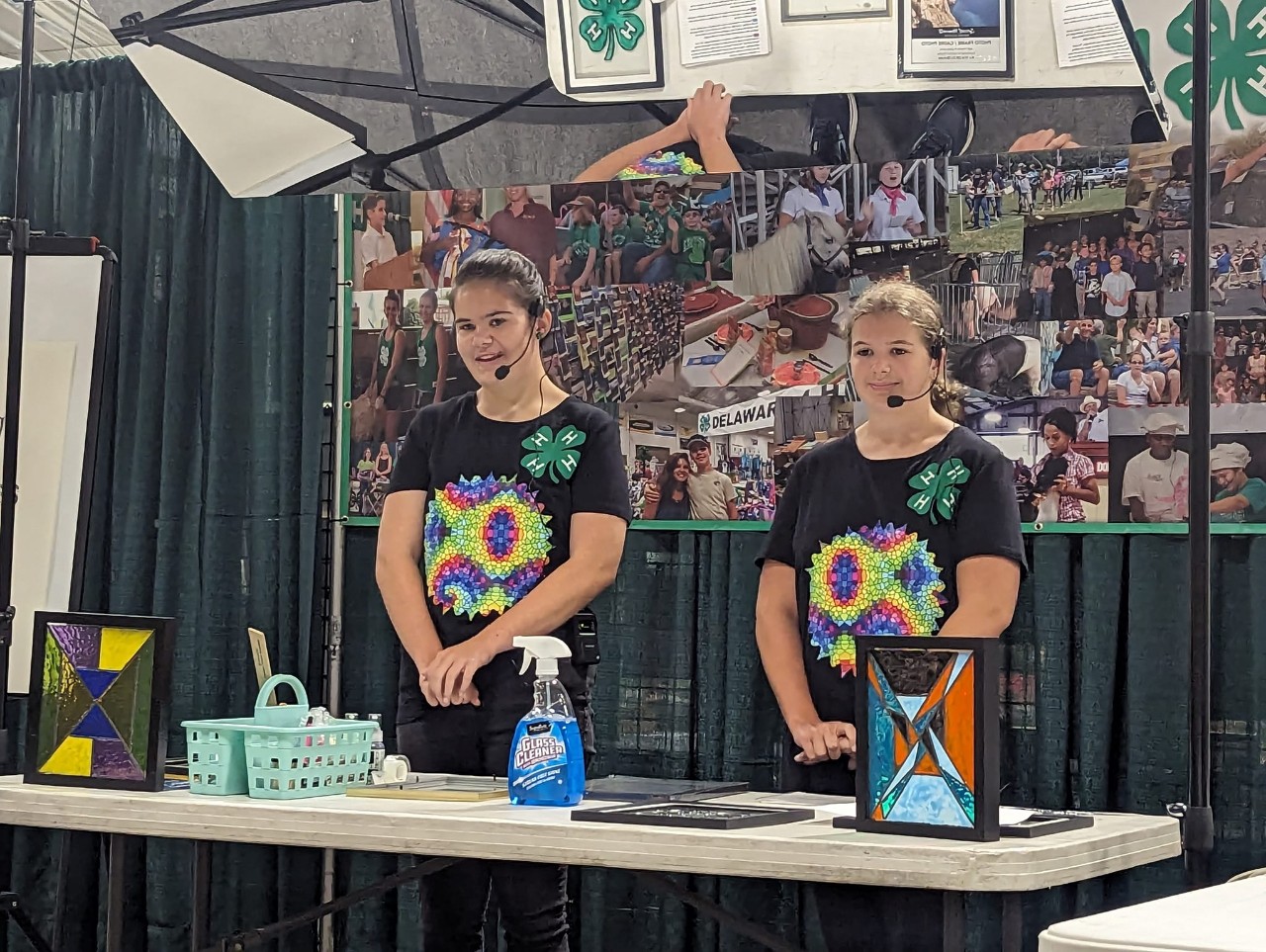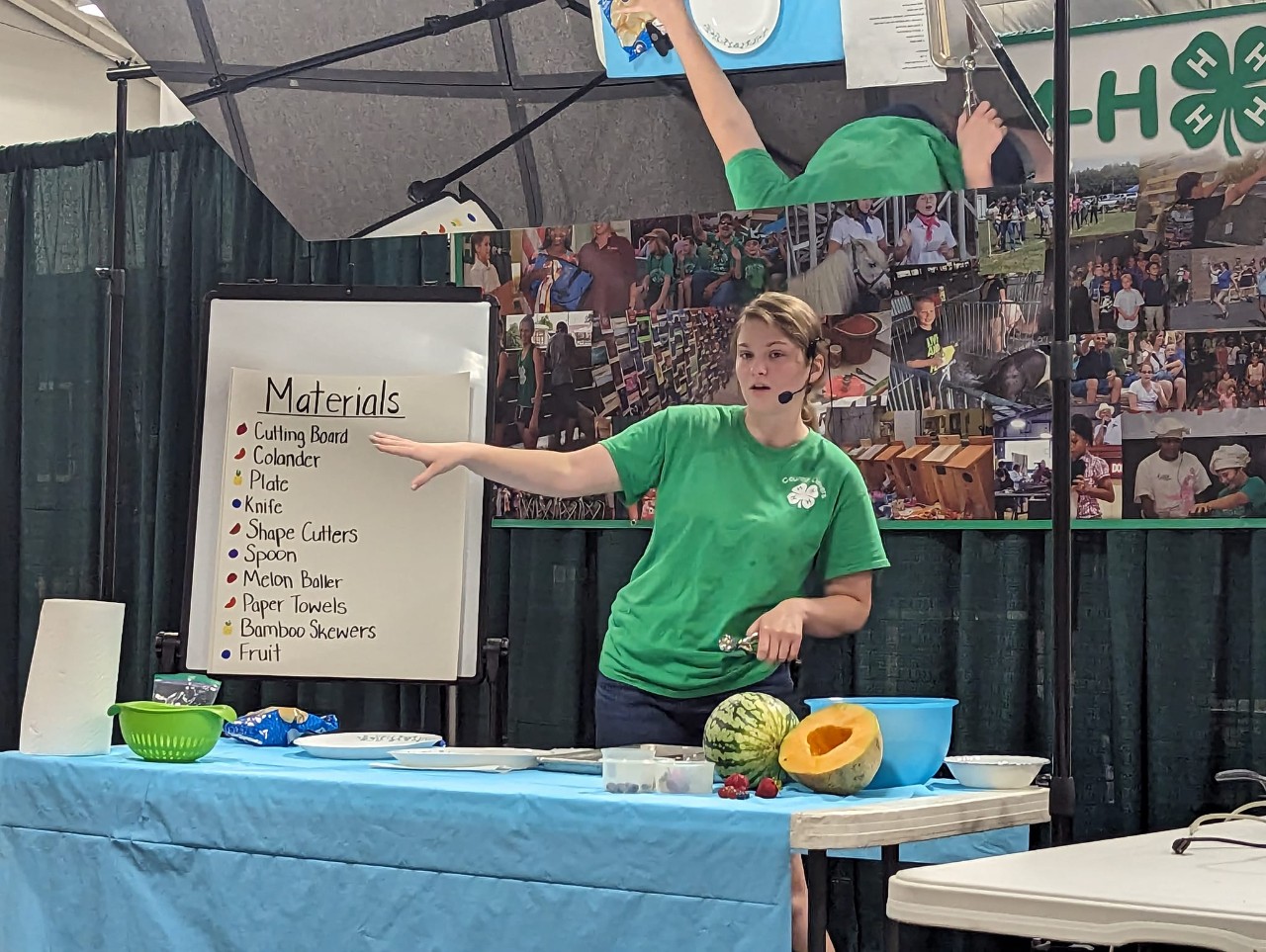
Category: Cooperative Extension

Delaware 4-H Members Gain Self-Efficacy Through Public Speaking
February 26, 2024 Written by Jill Jackson, 4-H Youth Development Agent
Communication is an important part of everyone’s life. From the time we are born, we are learning to communicate with others. As we get older, we want to communicate effectively to make a statement and inform others. Even if a student fears public speaking, he can perform well by practicing and rehearsing quite rigorously. Public speaking if treated as a skill can be tremendously improved upon (Burgess, 2013). When a variety of public speaking opportunities occur in a young person’s life, they become more confident speaking in front of others.
Lifelong Skills
The Delaware 4-H program consistently provides programs to teach our youth leadership and communication skills as these are important life skills for every individual to learn. The goal of Delaware 4-H public speaking events are to provide members with techniques to help them improve their communication skills and feel comfortable speaking in any situation. Competitive 4-H events include the Public Speaking Contest where members are asked to develop a speech around a topic of their choice and present to an audience and judges. Another competitive event is the Demonstration Contest where an individual or pair present a “how to” demonstration or illustrated talk on a topic of their choice. Both events are held at the county and state levels. Non-competitive ways members can improve their communication skills include being a club officer, giving event reports at a club meeting, leading a club activity or song, participating in interviews, and more!


Research Project
During the spring of 2023, University of California’s 4-H program reached out to multiple states to take part in a Public Speaking Self-Efficacy (PSSE) Research Project. The goal was to survey 4-H members as well as non-4-H members in each state to see what impact 4-H programming has on youth public speaking skills. Delaware 4-H surveyed seventy-one 4-H members ages 12-17 who had participated in public speaking events at the local, county and state levels. Delaware 4-H also asked seventy non-4-H youth (ages 12-17) to complete the survey to see the positive impacts 4-H programs have on youth’s speaking skills. Based on the results of the surveys (n=141), Delaware 4-H’ers self-report significantly higher levels of public speaking self-efficacy, mastery experience, vicarious experience, and social persuasion than that of non-4-H members. Mastery experiences are those situations where a person completes a challenging task or overcomes a difficulty. Vicarious experiences happen when a youth sees another youth accomplish a task. The vicarious experience of observing a model can also have a strong influence on self-efficacy. By observing others like themselves perform tasks, individuals make judgments about their own capabilities. (Del Siegle, 2000). Social persuasion refers to people who are persuaded by others that they can master a certain task. PSSE (scale of 0-5) is measured using 12 Likert-scale items.
The following survey results were identified: 4-H Responses Non-4-H Responses
Mastery Experiences mean: 4.3 3.4
Vicarious Experiences mean: 4.1 3.3
Social Persuasion mean: 3.9 3.1
The conclusion provided from this survey stated that Delaware 4-H members reported a higher level of public speaking self-efficacy compared to individuals who did not participate in 4-H youth development programs. 4-H members emphasized the importance of consistent practice, gaining confidence through positive feedback, and actively seeking opportunities to engage in public speaking as helping them improve their public speaking skills.
